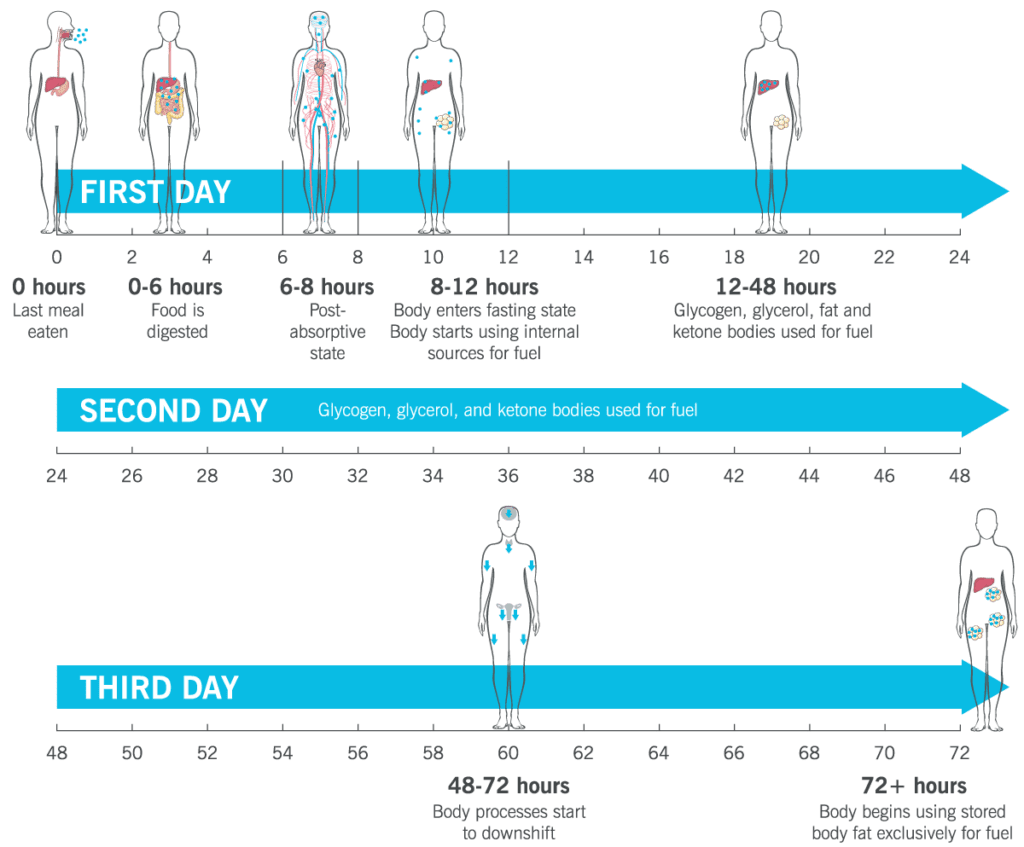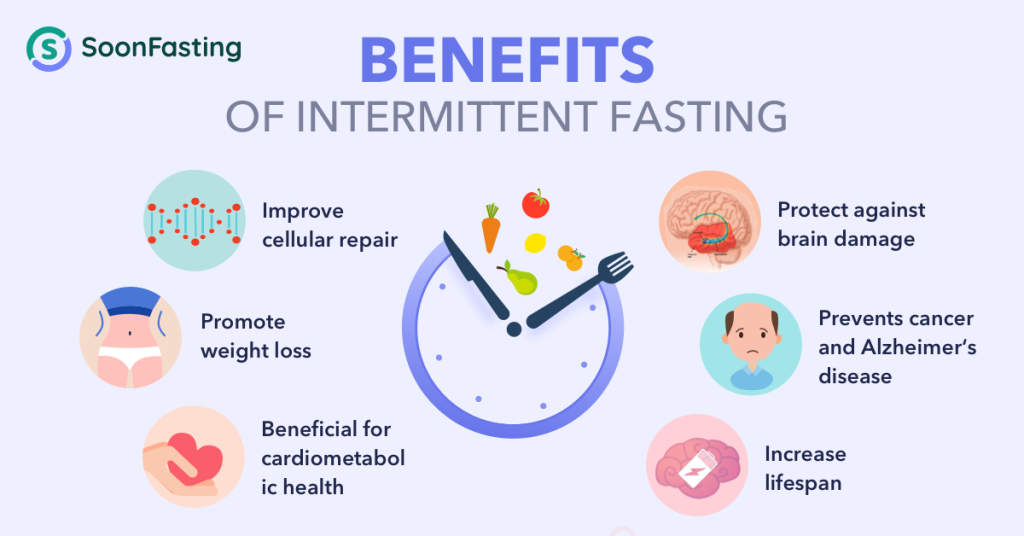In recent years, intermittent fasting (IF) has gained considerable attention as a simple, effective way to improve health and well-being. While diets can be restrictive and hard to follow, intermittent fasting focuses more on when you eat rather than what you eat. This beginner’s guide will introduce you to the concept, benefits, and basic methods of intermittent fasting, helping you determine if it’s the right choice for your lifestyle.
What is Intermittent Fasting?
Intermittent fasting is an eating pattern that alternates between periods of eating and fasting. Unlike traditional diets that focus on reducing calorie intake or cutting specific food groups, IF encourages time-restricted eating. It doesn’t prescribe what you eat but when you eat, allowing you to maintain a regular diet while reaping health benefits.
The idea is to give your body time to digest, repair, and burn fat during fasting periods while focusing on nourishment and balanced eating during feeding periods. This simple approach appeals to many as it doesn’t require strict calorie counting or meal planning, making it easy to incorporate into everyday life.
How Does Intermittent Fasting Work?
During a fast, your body uses up stored carbohydrates for energy. Once these reserves are depleted, it shifts to burning fat. This metabolic shift is what makes intermittent fasting effective for weight management and fat loss.
Moreover, fasting has been shown to lower insulin levels, which helps improve fat burning. It also triggers cellular repair processes, reduces inflammation, and may promote longevity. Many people report feeling more energetic and focused during fasting periods, as the body switches from digestion to repair and rejuvenation.

Popular Intermittent Fasting Methods
There are several intermittent fasting methods, so you can choose one that suits your lifestyle and preferences. Below are a few popular options:
- 16/8 Method: This is one of the most common forms of intermittent fasting. You fast for 16 hours and eat during an 8-hour window. For example, if you finish dinner at 8 PM, you would skip breakfast and eat again at noon the next day.
- 5:2 Diet: In this method, you eat normally for five days a week and significantly reduce calorie intake (usually around 500–600 calories) on the other two non-consecutive days.
- Eat-Stop-Eat: This involves fasting for a full 24 hours once or twice a week. For instance, you might finish dinner at 7 PM and fast until 7 PM the next day.
- Alternate-Day Fasting: As the name suggests, you alternate between normal eating days and fasting days. On fasting days, calorie intake is drastically reduced or eliminated.
Benefits of Intermittent Fasting
Intermittent fasting offers numerous health benefits, which is why so many people are drawn to it. Some of the most well-researched benefits include:
- Weight Loss: By limiting eating windows, IF reduces overall calorie intake, leading to weight loss. Additionally, fasting boosts your metabolism, making fat burning more efficient.
- Improved Metabolic Health: IF can help regulate blood sugar levels, lower insulin resistance, and improve cholesterol levels.
- Longevity: Studies on animals suggest that intermittent fasting may help extend lifespan by promoting cellular repair and reducing oxidative stress.
- Better Brain Function: Fasting promotes the production of brain-derived neurotrophic factor (BDNF), a protein linked to improved brain health and reduced risk of neurodegenerative diseases.

Is Intermittent Fasting Right for You?
Intermittent fasting is a flexible and straightforward approach to improving health, but it may not be for everyone. If you have certain medical conditions or are pregnant, consult with your doctor before starting. It’s also essential to listen to your body—start slowly, see how it affects you, and adjust the method to your lifestyle.
In conclusion, intermittent fasting offers a sustainable and manageable way to support weight loss, improve metabolic health, and promote overall wellness. By choosing a method that fits your routine, you can begin to incorporate fasting into your lifestyle for long-term benefits.














Leave a comment